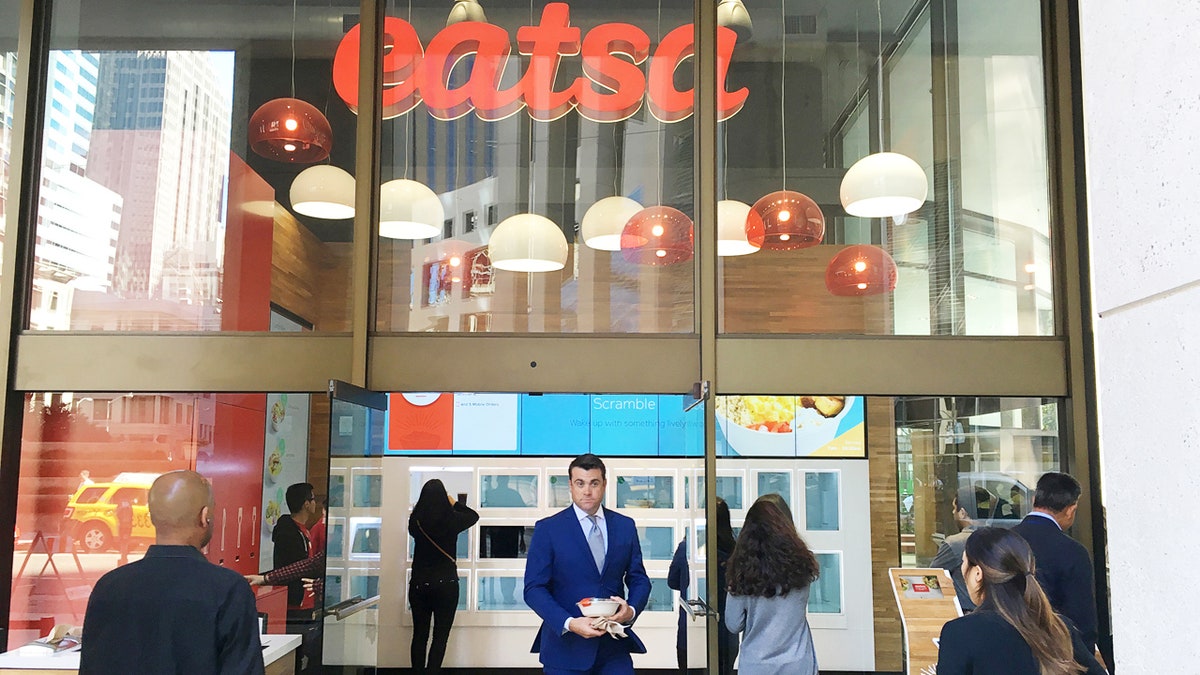
Customers order meals on tablets and pick up food from cubbies at Eatsa, a restaurant in the financial district of San Francisco, California, U.S., September 28, 2016. (Reuters)
Tech-savvy restaurant Eatsa touts its ability to let customers seamlessly order, pay for and pick-up food at their seven establishments without any need for human interaction.
Customers place orders via in store tablet kiosks or a smartphone app, then pay using self-service credit card scanners. The final meal is picked up at a clear, cubby-like container-- so most diners can complete the full process without having to deal with someone on the other end of a counter, or even seeing how their food is prepared.
But, according a class action lawsuit filed last week in New York City, the restaurant with locations in California, D.C. and New York City has not properly accounted for needs of all patrons, specifically those are blind or suffer from some type of visual disability.
Disability Rights Advocates, a nonprofit organization, filed the suit claiming that Eatsa is not accommodating blind customers in either its ordering model or within the store's design.
INSIDE THE FOOD INDUSTRY'S HIGH TECH FUTURE
The chain, which provides quinoa-based bowls that customers can customize with toppings, currently has two locations in New York City.
According to the suit cited by Eater, tablet technology can be utilized for blind and low-vision customers-- but Eatsa has not implemented it.
“Because the self-service mobile applications, touchscreen tablets, and visually-marked cubbies Eatsa utilizes rely on exclusively visual displays and do not provide any form of audio output or tactile input, Eatsa’s design is entirely inaccessible to blind customers,” states the lawsuit.
Voice activation technology can be used along with headphones jacks on tablets, which allow users to hear instructions and or/options. Properly enabled iPad tablets also have a way for those with low vision to zoom in on the text. But the suit, which invokes the Americans With Disabilities act, alleges that Eatsa has disabled these features.
FOLLOW US ON FACEBOOK FOR MORE FOX LIFESTYLE NEWS
Accordingly, plaintiffs are asking that the eatery pay for attorney and legal fees, fix the current service issues regarding customers with disabilities and “grant such other and further relief as the Court deems just and proper.”
Eatsa opened its first location in San Francisco in 2015.
A representative from the restaurant chain was not immediately available for comment.




















